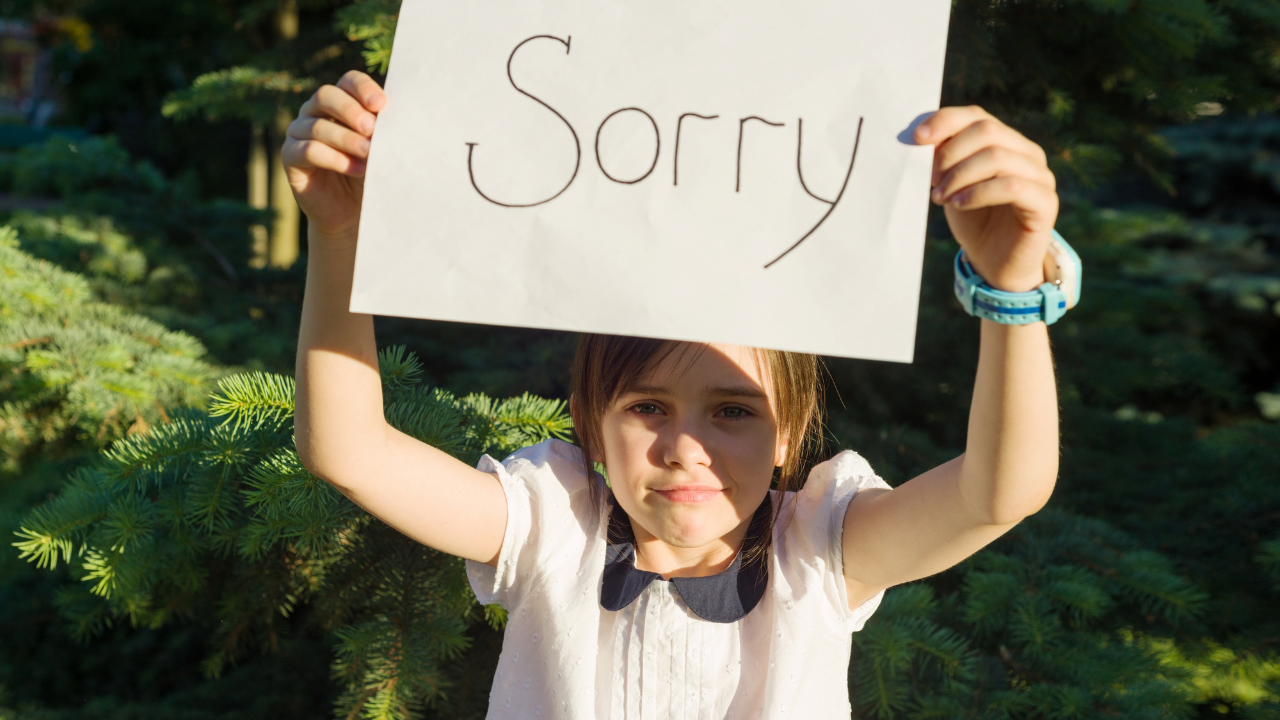Sorry, Not Sorry: How to Build Empathy When a Child Hurts Another child

Say “Sorry!”
Many parents have heard or figured out that it can backfire when we make or ask a child to say they are sorry. When they refuse, we feel stuck and the hurt party feels worse. Or we get an angry, “Sorry!” hurled at the other child. However, we often don’t know what to do to help our child develop and express empathy or remorse. And, we find that when they don’t say it, well meaning adults see your child as uncaring. But, experience tells me this is quite the opposite.
Understanding the Child First
To understand the child after an incident, let’s break it down. We have all been there: one child hit, or grabbed from, or said some hurtful words to another child. The hurt child may be crying or otherwise making clear how hurt they are. But the offender, for lack of a better term, is also struggling. To understand that child, we need to step into their shoes.
The Stress Response when A Child has Hurt Another Child
We may not know if the hit or grab was the result of feeling frustrated, or unheard, or if they were simply trying unsuccessfully to connect, or be funny. But often it's one of these things. Now, here they are and they have hurt a child – there is crying, (maybe a mark or blood?) and an adult or two rushing to the scene. This child is likely feeling upset, sad, scared, and embarrassed. And as their worry and stress rise, they are likely to have some form of fight, flight or freeze response. In fact, the more affected they are, the more likely they are to have this response. Fight might look like arguing or telling you what the child did to them. Flight might be running away or simply checking out mentally, blocking it out, changing the subject, or tuning you out. And freeze may just be that – not responding, just frozen. All too often this is seen as uncaring or worse.
And in that high stress moment, with the cortisol flowing freely through the little offender, the adult’s response can either further trigger it or slow it down.
Common Adult Responses that Trigger Stress
Lets look at the common adult responses.
“Why did you do that?! “ When cortisol is released, logic and reasoning are stopped and questions make this response worse. The child is unable to answer, and is now getting more upset.
“Say you are sorry! “That wasn’t nice.” “Look how sad you made her!” All of these can create shame, which is not helpful and more stressful.
When they do not respond to these, rather than view the child as unkind, uncaring or without any empathy, recognize this as a heightened stress response. When stress is high, cortisol is released in the brain and stays in the system for up to three hours. We cannot expect this child to feel compassion, think about what they did, or make amends, when this is happening.
What TO DO Instead?
First comfort and empathize with the hurt child, ”Ouch, that hurt. You did not expect that…” – not only are you offering what the hurt child needs, this is much more effective in building empathy.
Then, to lower the stress response in the child who did the hurting or grabbing, they need empathy and reassurance too, so that they can make room for the feelings of another.
“You were frustrated. You did not plan to hurt them.”
Chances are the child will, on their own, begin to lower their own stress, and hear how you are empathizing with the child, and they may even make amends…with words or offering the toy. And if we are trying to develop true empathy, this is more effective than a forced apology.
And if the child is still unable to say or do anything to make amends, rather than shaming the child with words like “not nice,” give them something concrete to do. “Please give back the car.” or “Please help me go get an icepack for her.”
Building Social Emotional Skills in Your Child
Despite much of the messaging we hear as parents, children do not develop social emotional skills through direct lessons told, but through relationships with skilled adults. Mariposa Education offers courses for parents (and educators, too) on building social emotional skills in children through our relationship. Go to our website to find out more.

